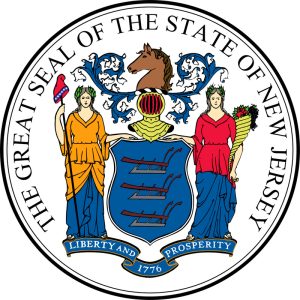
The New Jersey Tax Court held that a taxpayer was entitled to a refund of corporation business tax (CBT) for tax years 2011 and 2012 after determining the taxpayer correctly used a market-based sourcing methodology to source service receipts to New Jersey. In its unpublished April 11, 2024, opinion, the court rejected the argument that the law and regulations in effect during the tax years at issue, which preceded 2018 legislation adopting market-based sourcing, required the use of a cost of performance (COP) methodology.
During the tax years at issue, New Jersey law required corporations to apportion entire net income to the state using a three-factor formula consisting of property, payroll, and sales factors. For sales factor purposes, the statute sourced receipts for services performed in New Jersey to New Jersey, but it was silent as to the treatment of services performed both in and outside the state. The New Jersey Division of Taxation’s regulation in effect during the years at issue required corporations to source such receipts using a COP methodology or, as relevant here, “some other reasonable method that should reflect the trade or business practice and economic realities underlying the generation of the compensation for services.”
The New Jersey headquartered taxpayer, which provided web-based solutions to customers throughout the country, had two primary business lines, both of which involved managing subsidy programs on behalf of out-of-state governmental entities. The taxpayer’s presence in New Jersey was substantial, but the majority of its employees were located outside the state. It was undisputed that the taxpayer performed its services both in and outside of New Jersey.
The taxpayer amended its 2011 and 2012 CBT returns to change its sourcing methodology from COP to market-based sourcing, asserting that market-based sourcing, and specifically sourcing service receipts based on customer location, better reflected the economic realities of its business. The switch to market-based sourcing significantly reduced the taxpayer’s sales factor. The Division denied the taxpayer’s refund claims on the grounds that the COP method was the most appropriate methodology.
The New Jersey Tax Court rejected the Division’s argument that, as a matter of law, taxpayers were prohibited from using market-based sourcing for tax years prior to 2019 (when the 2018 legislation went into effect), finding no support for the argument in the statute’s text or legislative history. The court observed that the Division’s own regulation did not require the use of COP in every instance, and it expressly contemplated the use of “some other reasonable method” reflecting the economic realities underlying how income is generated. In addition, the court noted that New Jersey courts had applied market-based sourcing in several cases involving tax years prior to 2019.
The court found that the economic realities of the taxpayer’s business justified the use of market-based sourcing. Although the taxpayer had its executive functions, software developers, and computer software and hardware in New Jersey, most of its employees and almost all its customers were located outside the state. Further, the taxpayer was performing services on behalf of governmental entities that ultimately benefited non-New Jersey residents and entities.
The case is Solix Inc. v. Director, Division of Taxation, No. 011113-2019 (N.J. Tax Ct. Apr. 11, 2024) (unpublished), available at https://www.njcourts.gov/system/files/court-opinions/2024/011113-2019.pdf.
 SeeSALT Blog
SeeSALT Blog

